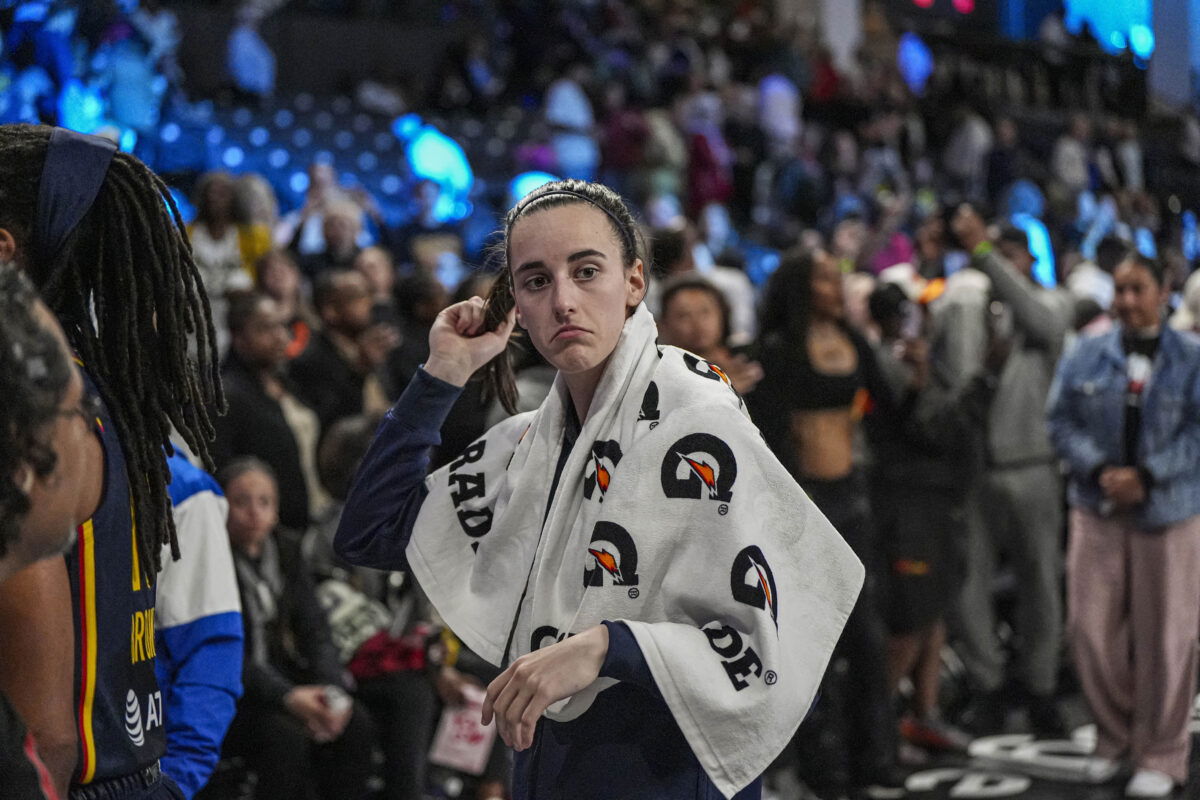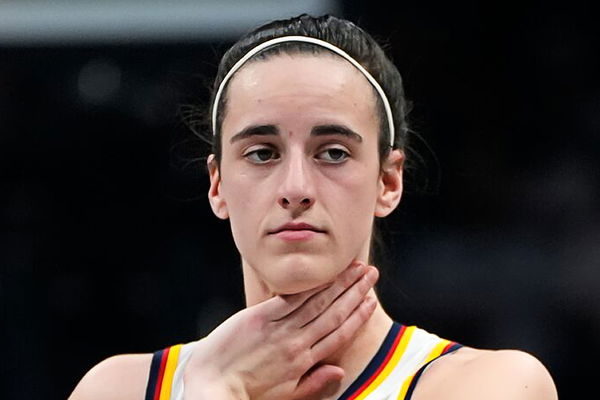
Imago
May 10, 2025; Atlanta, GA, USA; Indiana Fever guard Caitlin Clark (22) leaves the court after the Fever defeated the Atlanta Dream at Gateway Center Arena @ College Park. Mandatory Credit: Dale Zanine-Imagn Images

Imago
May 10, 2025; Atlanta, GA, USA; Indiana Fever guard Caitlin Clark (22) leaves the court after the Fever defeated the Atlanta Dream at Gateway Center Arena @ College Park. Mandatory Credit: Dale Zanine-Imagn Images
No doubt, Caitlin Clark’s sophomore year is going to be very different from her rookie campaign. Not only is she more prepared—just look at her 36-foot logo shot in the preseason—but the players surrounding her are also different. Whether it’s DeWanna Bonner, Natasha Howard, or even Sydney Colson, each of them brings something the Fever didn’t have last season when they finished 20-20. “The main thing we were lacking last year was experience,” Clark admitted. So now, she has a clear vision of where she wants to lead the Fever: to a championship. But that journey won’t come without sacrifices—at least according to analysts.
Watch What’s Trending Now!
And those sacrifices? Before we dive into what led her to this moment, let’s rewind to analyze her rookie season. While it’s already one of the most talked-about seasons in WNBA history, there’s one detail many missed—her minutes. For those unaware, Clark averaged a staggering 35.4 minutes per game in the regular season.
After June, there were barely one or two games where she played fewer than 35 minutes. Of course, fans couldn’t get enough—they paid double the ticket price just to watch her live. But surely the 2024 Rookie of the Year must’ve been tired from such extended playing time?
Not really. At least not judging by her production. She totaled 337 assists, setting a new WNBA rookie record. She also knocked down 122 three-pointers, the second-most ever in a season behind Sabrina Ionescu. And she recorded two triple-doubles, a first for a rookie in league history.
Still, the reason the Fever leaned on Clark so heavily went beyond just stats. She led the team in both points (19.2) and assists (8.4), proving herself as the engine that kept Indiana alive—especially as they navigated a brutal early schedule that included multiple games against powerhouses like the Sun and Liberty in the first month.
It makes sense why they kept her on the floor so much.
But that won’t be the case anymore.
“Firstly, yes, Caitlin Clark played a ton of minutes last year. There were some games where she didn’t even sit out at all. Do I think she’s going to do that again this season, especially under Coach Stephanie White? No, I don’t. But I do think she’s going to play significant minutes—probably over 30 a game at least,” said Rachael DeAmita in one of her recent videos.
DeAmita’s analysis aligns with White’s track record, as the 2023 WNBA Coach of the Year is known for managing star players’ workloads effectively—keeping them fresh and focused for a playoff push.
And there’s a reason for that speculation.

Ever since Stephanie White took over as head coach, everything has changed—from defense to backcourt dynamics to offensive schemes. But one of her top priorities? Managing everything around Caitlin Clark.
Since Clark reportedly bumped knees with a practice player during a team session on May 2, it’s expected she’ll have reduced minutes at times. Described as a minor left leg injury with some tightness, the issue kept her out of the Fever’s first preseason game on May 3, but she returned for limited minutes, 23 in the May 10 game against Atlanta, showing she’s on track for the regular season opener. That injury is also why she missed the Fever’s first preseason game.
“She’s been limited in practice, so we’re still very cautious about working her way back and really letting her body kind of tell her how much she’s able to do,” Coach White explained afterward.
That makes perfect sense, considering the Fever need her at full strength to reach their main goal: a championship. And given the physicality of the WNBA, managing her minutes is more important than ever.
But there’s more to it.
The Fever have turned the corner in a big way. They’ve made power moves by bringing in veterans like Sophie Cunningham to build around Clark. These vets will play a crucial role in shaping the type of offense White envisions.
“I think the offense is just going to look a little bit different. We saw, for the most part, when Caitlin’s not on the floor, Sophie seems to be that backup point guard—even though that’s not her true position.”
And she’s not wrong.
Standing at 6’1”, Cunningham is traditionally known for her scoring and defensive grit. But in the Fever’s preseason game against the Mystics, she showed her playmaking chops too. Coming off the bench, she led the team with 21 points and played a key role in the Fever’s 79–74 overtime win.
Her performance was instrumental in rallying the team from a 15-point deficit, highlighting her ability to deliver in clutch moments. This isn’t new for her—Sophie played backup point guard in college and finished her NCAA career as the program’s all-time leading scorer with 2,186 points, helping the Tigers to four consecutive NCAA Tournament appearances.
It’s all thanks to her ability to contribute in multiple areas—and that’s exactly what the Fever needed.
“We’ll see people like Sophie playing backup point. We’ll see Sydney [Colson] playing backup point. We’ll see Kelsey [Mitchell] running the one at times. I even saw DeWanna Bonner bringing the ball up the court during some of these preseason games. I’m not worried about it at all,” the national analyst observed.
This is all part of White’s broader plan: to distribute ball-handling duties and take the pressure off Clark. It’s a sign of confidence in her team’s versatility, and a smart way to build resilience for the long haul.
So, when Clark’s not on the court, the Fever aren’t scrambling—they’ve got veterans to step up. And honestly, this plan could be a sign of something much bigger.
Stephanie White might be handling Caitlin Clark’s drawbacks differently
Limiting Clark’s minutes on the court would also mean fewer turnovers and technical fouls. For those unaware, Clark’s rookie campaign wasn’t free from criticism—especially since she picked up a number of technical fouls. Her six technicals were the second-most in the league and just one shy of a suspension.
“I was close to getting suspended for our last game, and like every front office or your GM tries to get your technicals taken away, and they wouldn’t take any of mine away,” Clark joked during a recent appearance on Diana Taurasi’s show. “I got two for slapping the stanchion of the hoop, and then I got another one for accidentally hitting someone in the eye, so half of mine weren’t even from talking to the ref, which was dumb.”
Well, thinking about Clark having just six in 44 games feels relatively low—but if her playing time is reduced, it’s possible to see even fewer. Especially considering she just set a new league record with 223 turnovers over 40 games, surpassing the previous mark held by Alyssa Thomas.
So, what do you think? If her minutes are limited next season, will it be because of her technicals, turnovers, Indiana’s growing depth—or her injury concerns?

